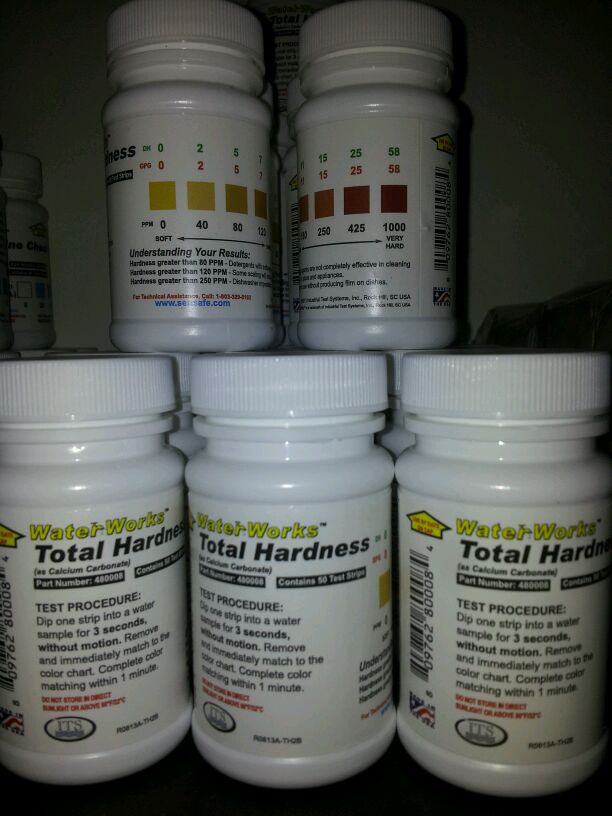'B.L. Pena' asked, "Can I use the waterworks hardness test on pool water?"
Thank you, B.L., for your inquiry. The WaterWorks Total Hardness Test Strips (480008) CAN get used to test pool water.
Importance of Water Hardness in Swimming Pools
Pool owners should test for water hardness for several reasons including:
- Soft water (low hardness) can act in a corrosive manner and 'pull' elements out of pool surfaces resulting in liner damage and/or pitting of pool surfaces.
- Hard water (high hardness) will not allow other chemicals such as chlorine tablets and powders or pool water balancing chemicals to dissolve in the water.
- Very hard water may leave tough-to-remove calcium deposits on pool surfaces.
- Improper water hardness balance in pool water can result in other chemicals not functioning properly.
What is Difference Between Calcium Hardness and Total Hardness?
Total hardness readings include concentrations of calcium as well as magnesium where as calcium hardness readings include only dissolved calcium concentrations.
What is Considered Hard Water and What is Considered Soft Water?
For drinking water, tap water and well water purposes:
- Very Soft Water: 0 - 40 ppm total hardness
- Soft Water: 40 - 120 ppm total hardness
- Hard Water: 120 - 425 ppm total hardness
- Very Hard Water: Greater Than 425 ppm total hardness
Grains per Gallon vs. Parts per Million
Depending upon where you look, water hardness gets reported as grains per gallon (GPG) or parts per million (PPM).
To convert between the two measurements, simply divide your parts per million value by 17.5 to get grains per gallon or multiply your grains per gallon value by 17.5 to get parts per million.





